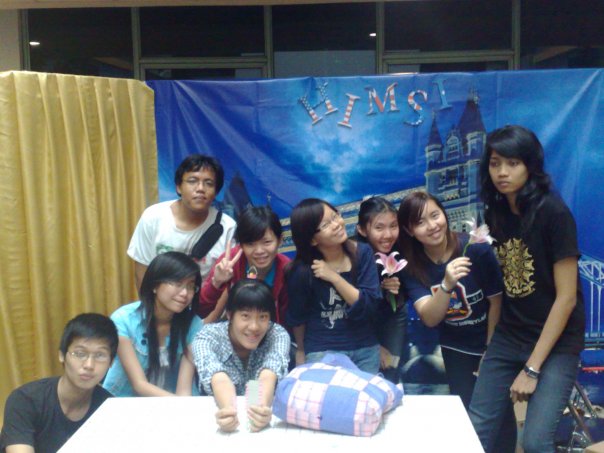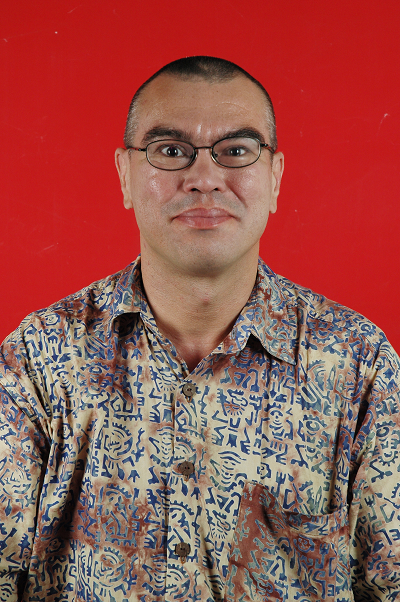If you are a student of the English Department, we assume you LOVE books!!!!!
If you don’t, please take the time to read the article below. It was written by Brian Tracy, who is a well known speaker and writer in the personal development field.
Let’s hope you get the reading habit!
“A capacity and taste for reading gives access to whatever has already been discovered by others.”
– Abraham Lincoln
By Brian Tracy
Some things in life are optional, and some things in life are mandatory. Taking your next vacation to the Caribbean is optional. Building a personal library and becoming an avid reader is mandatory. It is no longer something you can choose to do. It is absolutely essential and indispensable for your success.
Some years ago, a young man came to me and asked for advice. Though he had managed to graduate from high school, he could barely read. Meanwhile, he was working at a dead-end job at minimum wage, and he had been there for two years. He was living in a small apartment on a limited budget. His friends from high school were in pretty much the same predicament. They all were working at low-level, low-skill jobs with no future.
He said he wanted to be successful at something that didn’t require reading. I told him that this was not a matter of choice. I told him that he had to learn to read, and read well. The only jobs that wouldn’t require him to read were the kinds of jobs he and his friends were already doing. And even those jobs soon would be done by younger, more eager people with better educations.
Much to his credit, he thought about what I said, and finally accepted the fact that he had to become a good reader. He began taking community-college courses in remedial reading. Eventually, he applied for entrance to a technical institute, and he got in by the skin of his teeth. Because of his poor high-school education, it took him almost three years to complete a two-year program in biomedical engineering. He stuck in there and worked hard, and finally got the degree.
A small company hired him as a sales representative, to call on hospitals and clinics in a rural territory. It wasn’t much, but he took it and ran with it. He continued to read, studying sales and communications on his own. He started that sales job at $22,000 per year, and within two years he was up to $30,000. In his third year, he was hired away by a rival company and paid $40,000 per year. Two years later, an international company heard about his success in the marketplace and hired him at more than $50,000 per year, with a company car, an expense account, and substantial benefits.
In seven years, he went from being a semiliterate, minimum-wage worker to a highly paid biomedical technical representative. And he was back in the big city with a townhouse, a new car, a wife, children, and a great life. The interesting thing is that as he went around trying to renew his old friendships, he found that most of the people he had graduated with were still working at dead-end jobs.
Seven years seems like a long time, but it passes in a flash when you are busy doing something you enjoy and getting continually better at it.
Many people think it’s up to their company to educate them if they need additional training. Well, if your company provides training, you should take advantage of every minute of it. But if it doesn’t, and most companies don’t, you are still solely responsible for maintaining and increasing your value through continuous reading. There is no other way.
Let me share with you some ideas that helped me go from high-school dropout and dishwasher, working in the kitchen of a small hotel, to chief operating officer of a $265 million company. These practices have been shared by most of the successful men and women in America. Their cumulative effect on the quality of your life can be amazing.
1. If you are not a good reader, make the decision, right now, that you are going to go any distance, pay any price, overcome any obstacle, and spend whatever amount of money it takes to become an excellent reader.
If you do not know how to read particularly well, stop everything else that you are doing outside of your work and dedicate yourself to reading. Spend every spare minute reading as if your future depends on it. Because it does.
It may take a week, a month, or a year to become a better reader. It may take even longer. But that doesn’t matter. Becoming an excellent reader will kick open doors of opportunity that you cannot now imagine.
2. If you are already a good reader, or when you become a good reader, learn to speed-read.
The Evelyn Wood Reading Dynamics program is probably the best that has ever been developed. Also, many communities throughout the country offer speed-reading classes. Speed-reading is like touch-typing. In typing, you can use the hunt-and-peck method all your life, or you can learn how to do it right and increase your speed to 50 or 60 words per minute. In reading, you can take your speed from 50 or 60 words per minute up to 300, 400, 500, or even 1,000 words per minute, with no loss of comprehension. Speed-reading is absolutely essential to the success of really ambitious men and women today.
3. Build a personal library.
Although public libraries are extremely helpful for research, you should buy your own books.
Which books should you buy? Use the Law of Relative Importance to make your decisions. Buy the books that are most important to your life at the moment. The key word here is “relevant.” Adults learn best when what they are studying is extremely relevant to their needs, their work, their life, and their present situation. If you read material that is not relevant to you, you will find it difficult. You will not be drawn to the material, and you will forget most of it as you go along. But when you read material that is both relevant and applicable to your work, your mind sparkles with all kinds of ideas on how you can use this new information to be more effective. The prospect of learning new methods and techniques that you know will improve your life is both exciting and highly motivating.
It’s also a good idea to ask the most successful people in your field what books they would recommend. Then go straight to the bookstore and buy them.
Every professional should have a library in his field – and professionalism is a state of mind. If you are in sales, for example, you should have a library of sales books. You should be reading at least one hour per day in sales, one book per week, 50 books per year. You should be a consistent, persistent student of your craft. You should know more about the field of selling than anybody else within 500 miles.
You should set a goal to become so knowledgeable about sales that you would be able to give advanced classes in your profession within a few years. With this goal as your guiding star, you will find yourself learning and remembering far more than you would if you were just browsing through the material.
Should you buy hardcover books or softcover books? I recommend that you purchase any book, hardcover or softcover, that can help you. Some books cost $20 to $30. The average person complains that he can’t afford such a book. The superior person recognizes that the information contained in that book can save him a year or two of hard work.
Remember, it may have taken the author of that book 10 to 20 years to learn his subject. It may have taken him two to three years to write the book, and one or two years to get it published. By paying a few dollars for that book, you probably are getting the results of 20 or 25 years of effort by one of the smartest people in your field.
In one 22-year study of self-made millionaires, researchers found that a common characteristic of those special men and women who went from rags to riches was that they were absolutely fascinated by their work. They didn’t think so much about making a lot of money. They were more concerned about becoming better and better at what they did. Their work absorbed them completely.
In almost no time at all, because of their commitment to reading and self-development, they were paid more and more. And once they reached a high level of income, their fascination with their work still continued. Instead of drawing extra money from their businesses and spending it frivolously, they reinvested it in themselves and in their careers. As a result, they became more and more proficient and wealthier and wealthier.
Then, one day, they opened their eyes, looked around, and found that they were worth more than $1 million. And the continuous learning, the nonstop reading, was the key reason.



